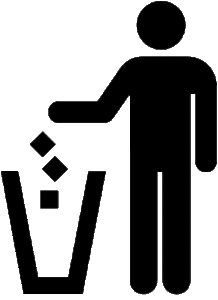Minimalism is misnamed

Minimalism as a lifestyle seems popular. I consider the name backward.
I avoid labels, but I think this one is nearly the opposite of what it describes—a lifestyle about maximizing, not minimizing.
The term maximalism seems already taken by something irrelevant to what I describe below, so I may be too late, but I suggest considering changing it.
The term minimalism means different things to different people, but the following people and communities seem central to it, and the theme uniting them is less—less stuff, clutter, distraction, etc.
- The minimalists, including this post explaining minimalism, What is minimalism?
- Mnmlist.com, including this post explaining minimalism, minimalist FAQs
- Becoming minimalist, including this post explaining minimalism, Benefits of minimalism
- Be more with less, including this post explaining minimalism, 25 reasons you might be a minimalist
- Exile lifestyle, including the post explaining minimalism, Minimalism explained
- Trash is for Tossers, including the post explaining a zero waste lifestyle, Four Years of Trash: One Jar. What’s in My Mason Jar?
- Zen Habits (I think the same person behind one of the above), including the post explaining minimalism, On minimalism
- And maybe the reigning queen, Marie Kondo, with the book, The Life-Changing Magic of Tidying Up
The focus on less stuff seems why people describe my apartment as minimalist. I think I have a lot of stuff, but anyone who comments says I have little. I consider Less, Please one of my most important posts. I take six months to fill a small bag’s worth of landfill garbage.
I bristle at the term minimalism. Partly I find labeling people dehumanizes them. Mainly I don’t feel the term captures what they see that prompted their using the term.
What people see as less stuff is more freedom, meaning, value, purpose, etc
I don’t get rid of things for the point of getting rid of them. I get rid of them to liberate myself from their holding me back.
It’s not about the stuff, however visible its absence. It’s about freedom, meaning, value, purpose, and things like that.
Talk to anyone in the movement, or me, and you hear us talking about freedom, meaning, and those things, which we maximize. Superficially we’ll talk about material things, but only as means to an end.
It’s like thinking that people who knit care mostly about knitting needles because they spend time with them. They care about sweaters, hats, and mittens. They need the needles to get there, but they care about the results.
More than the results, they care about the people they share them with and the emotions they create.
Why label a movement by what it devalues and what it doesn’t do?
Labeling the movement by what it devalues implies people care about what they don’t and that they are moving in a direction they aren’t.
Minimalism as a label in architecture and design makes sense because the architects and designers are getting rid of stuff. As a label for a lifestyle, it’s backward.
Everyone I’ve talked to who practices what people call minimalism cares about freedom, meaning, relationships, etc, which they create more of. Yet the movement’s label is about material stuff and sounds like deprivation or sacrifice.
I suggest someone more central to the lifestyle, who embraces labeling it, work to claim the term maximalism from design and apply it here.
Read my weekly newsletter

On initiative, leadership, the environment, and burpees